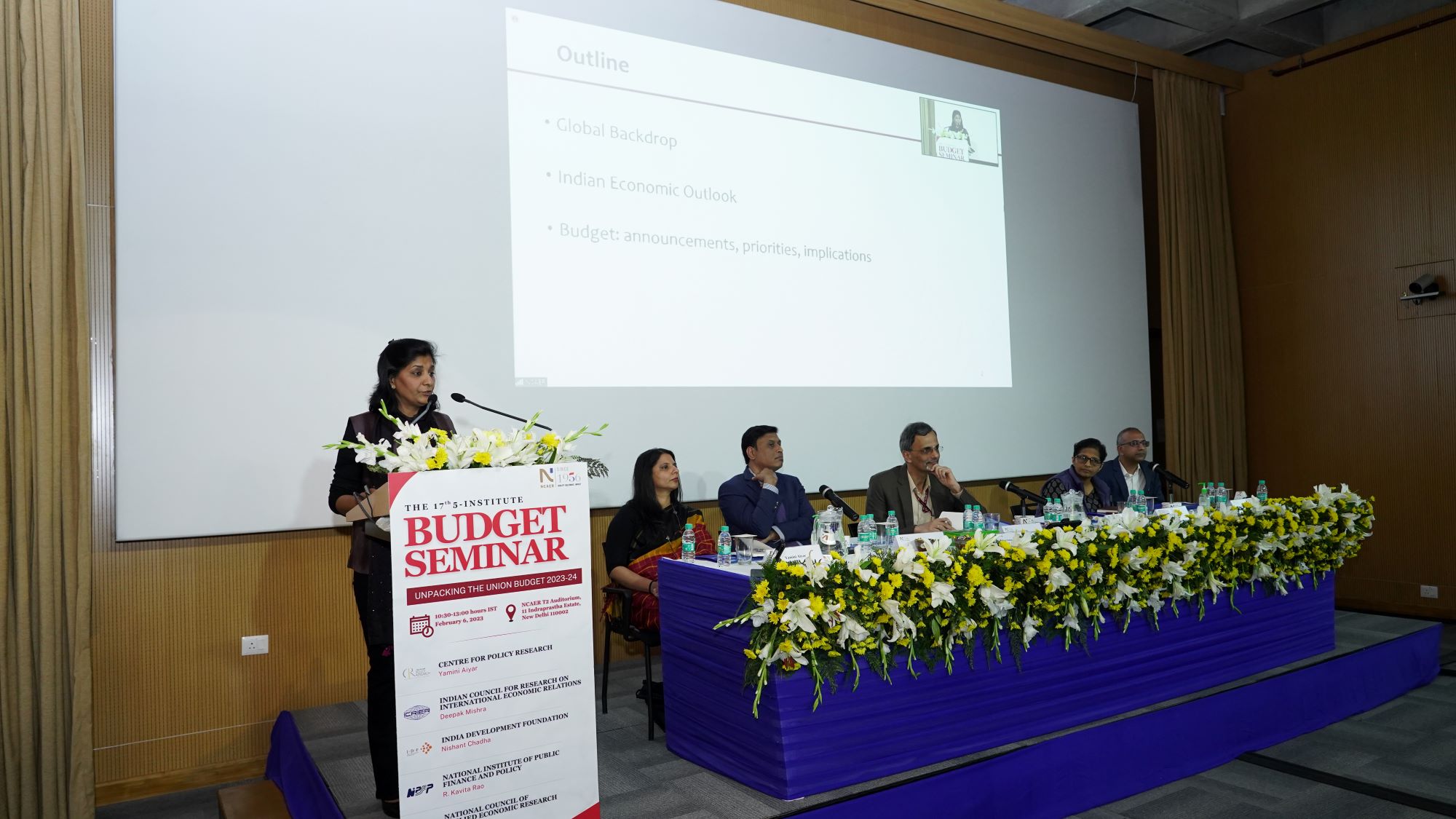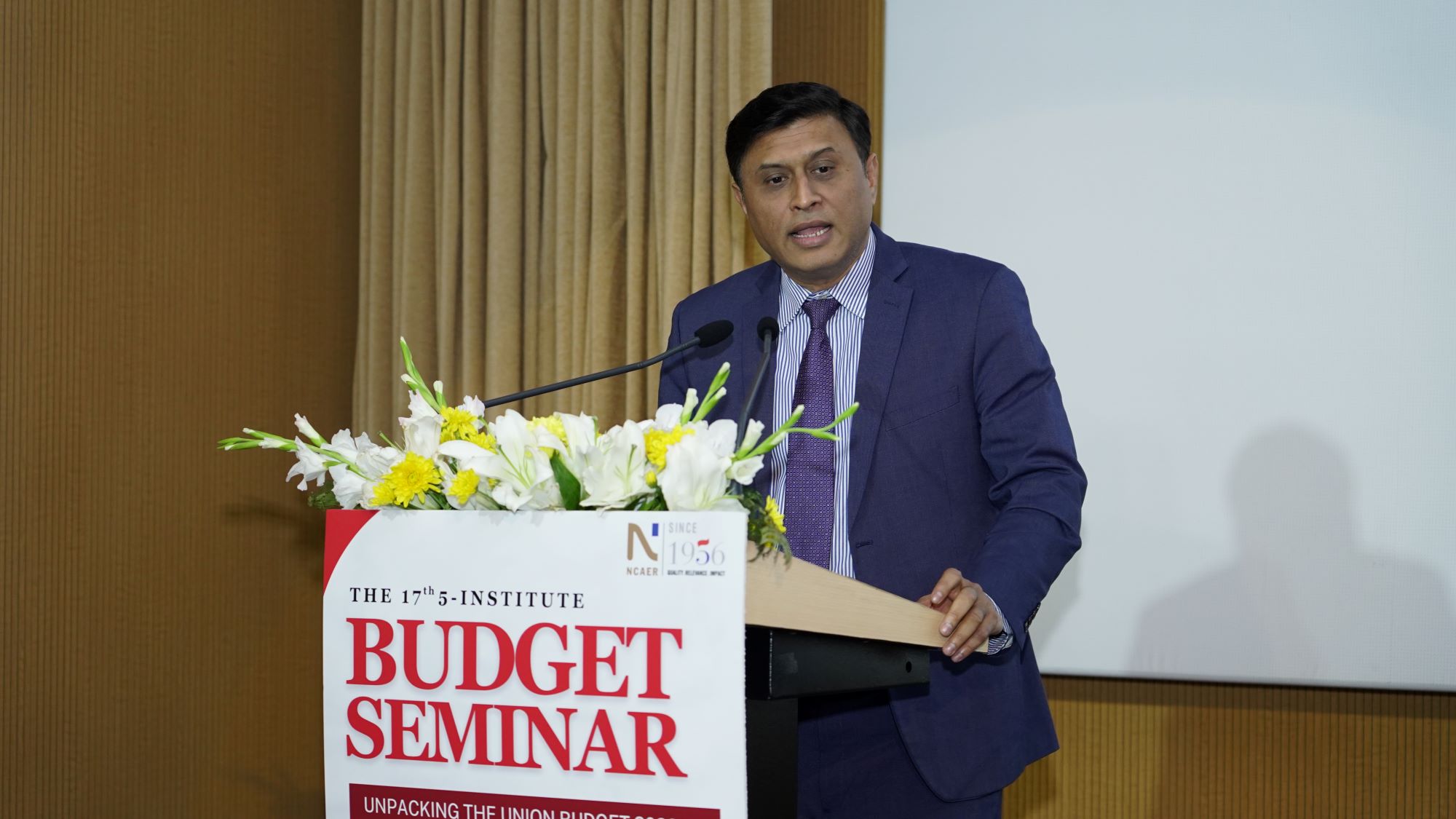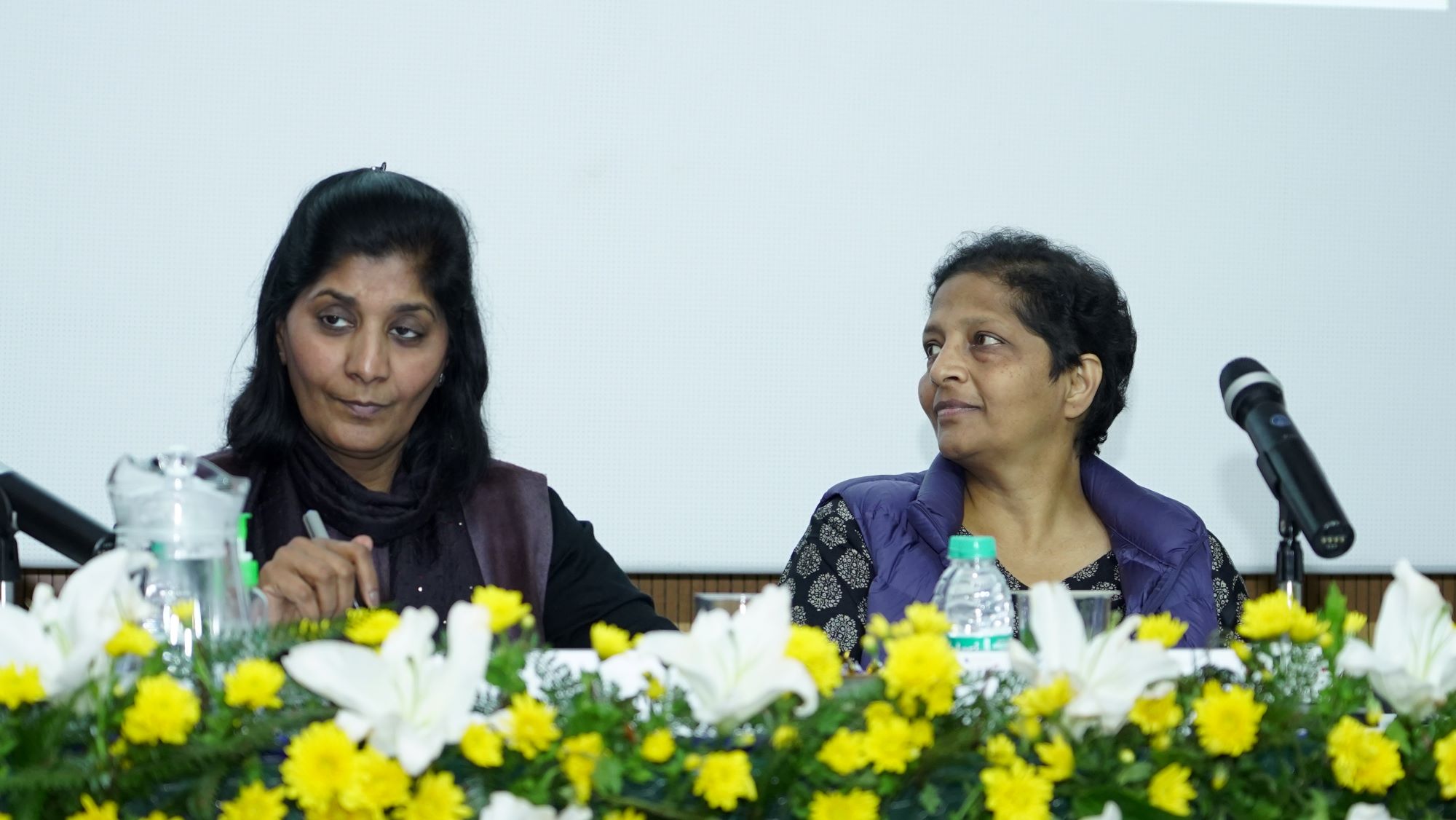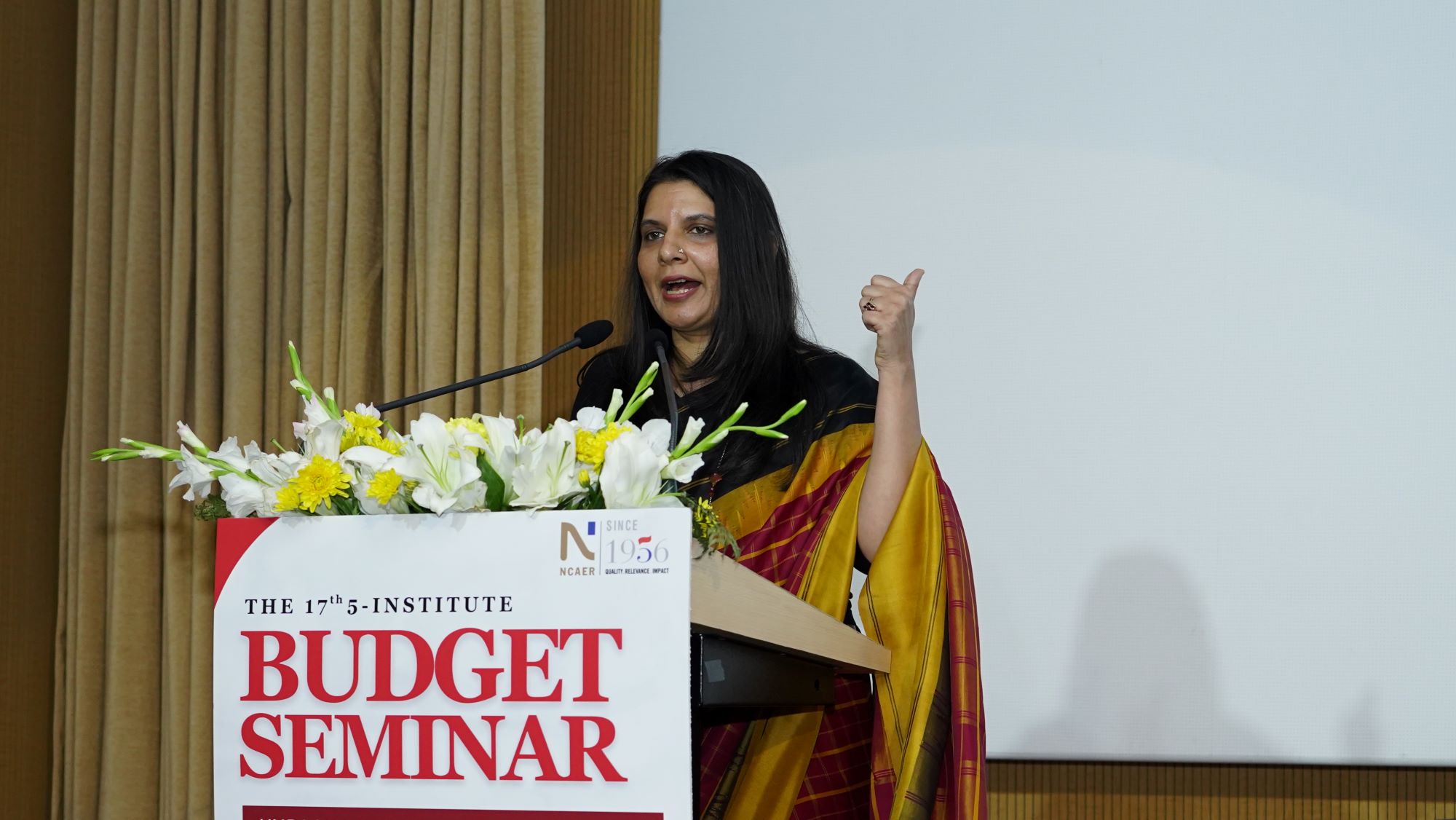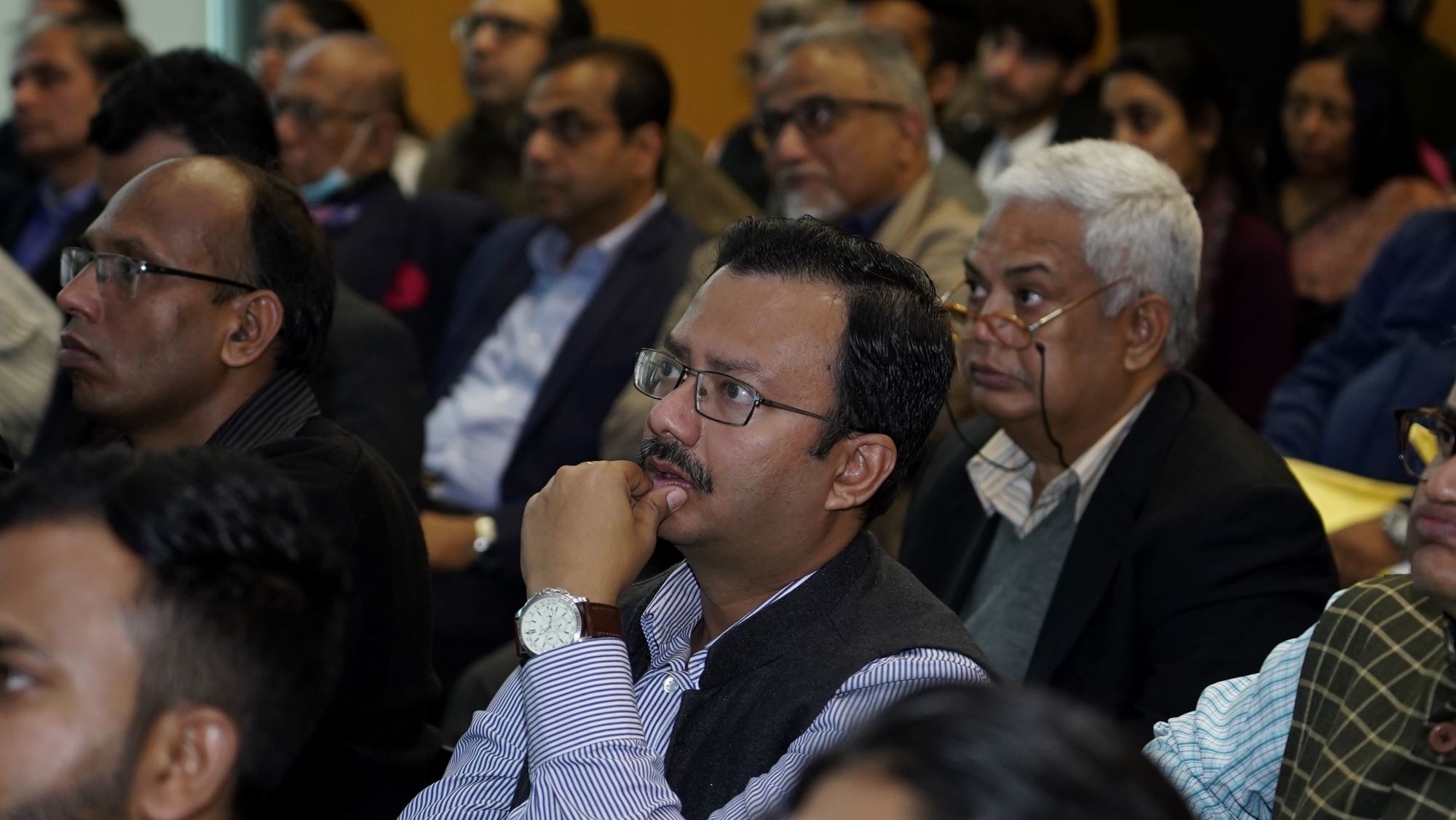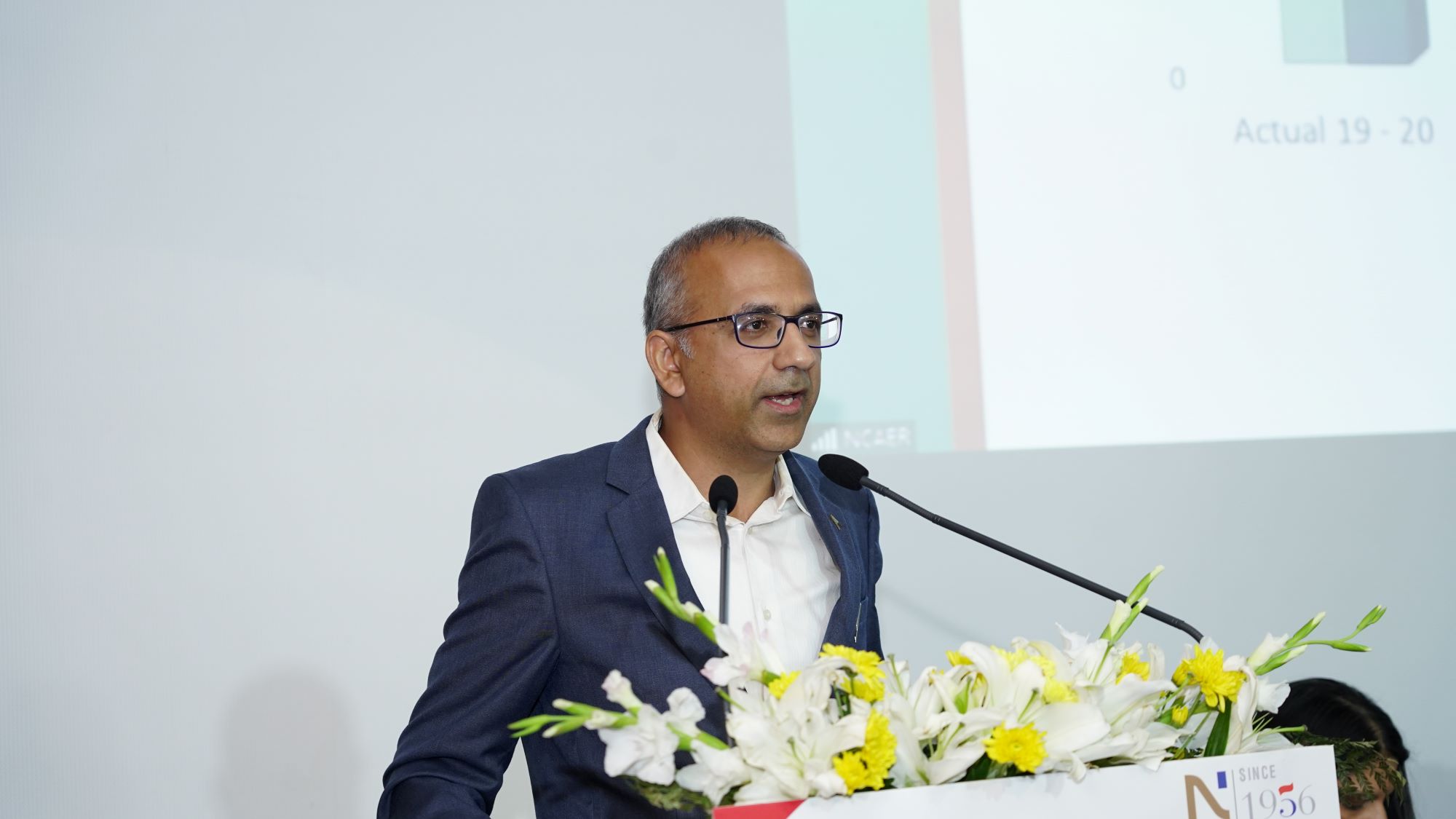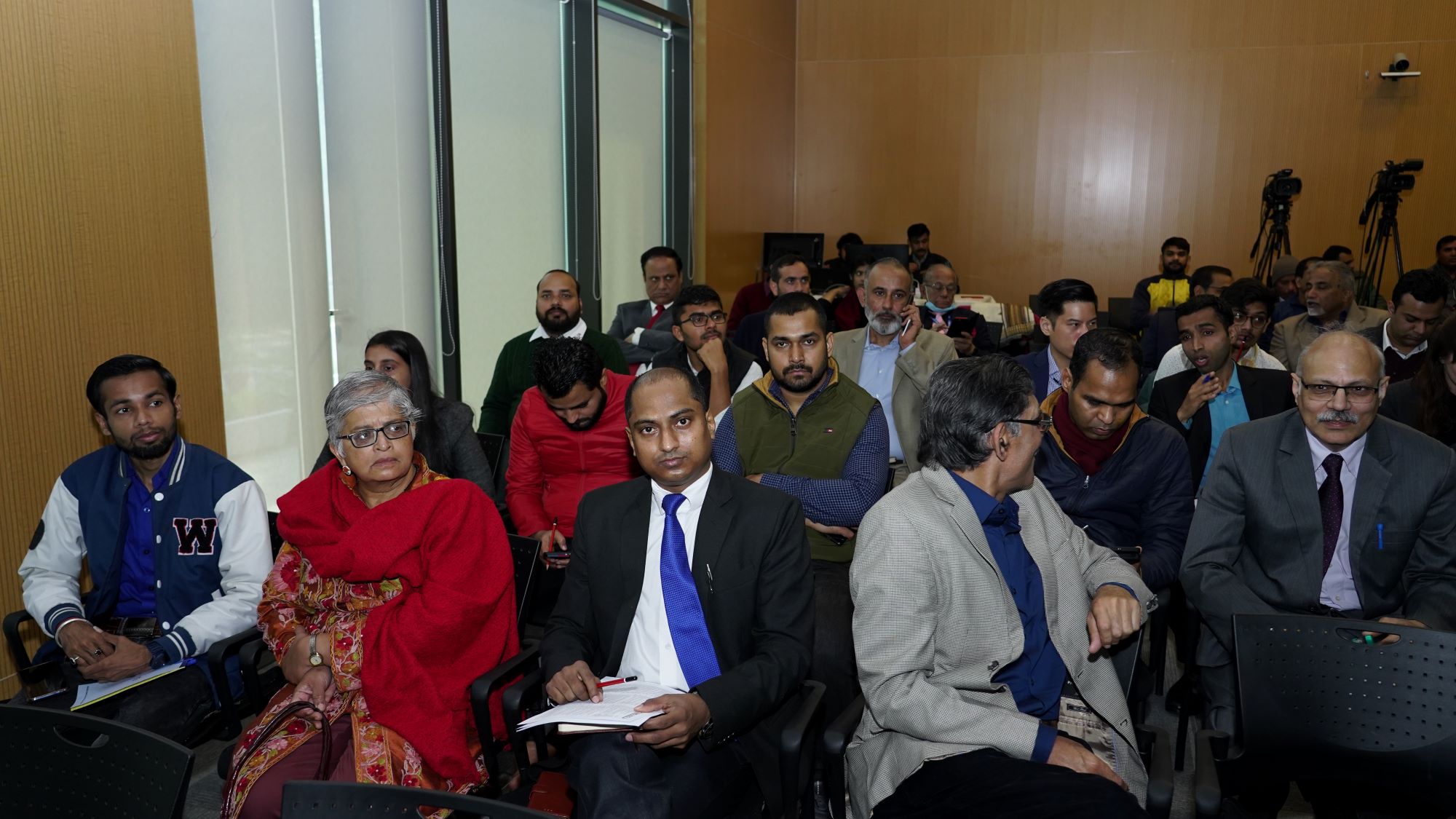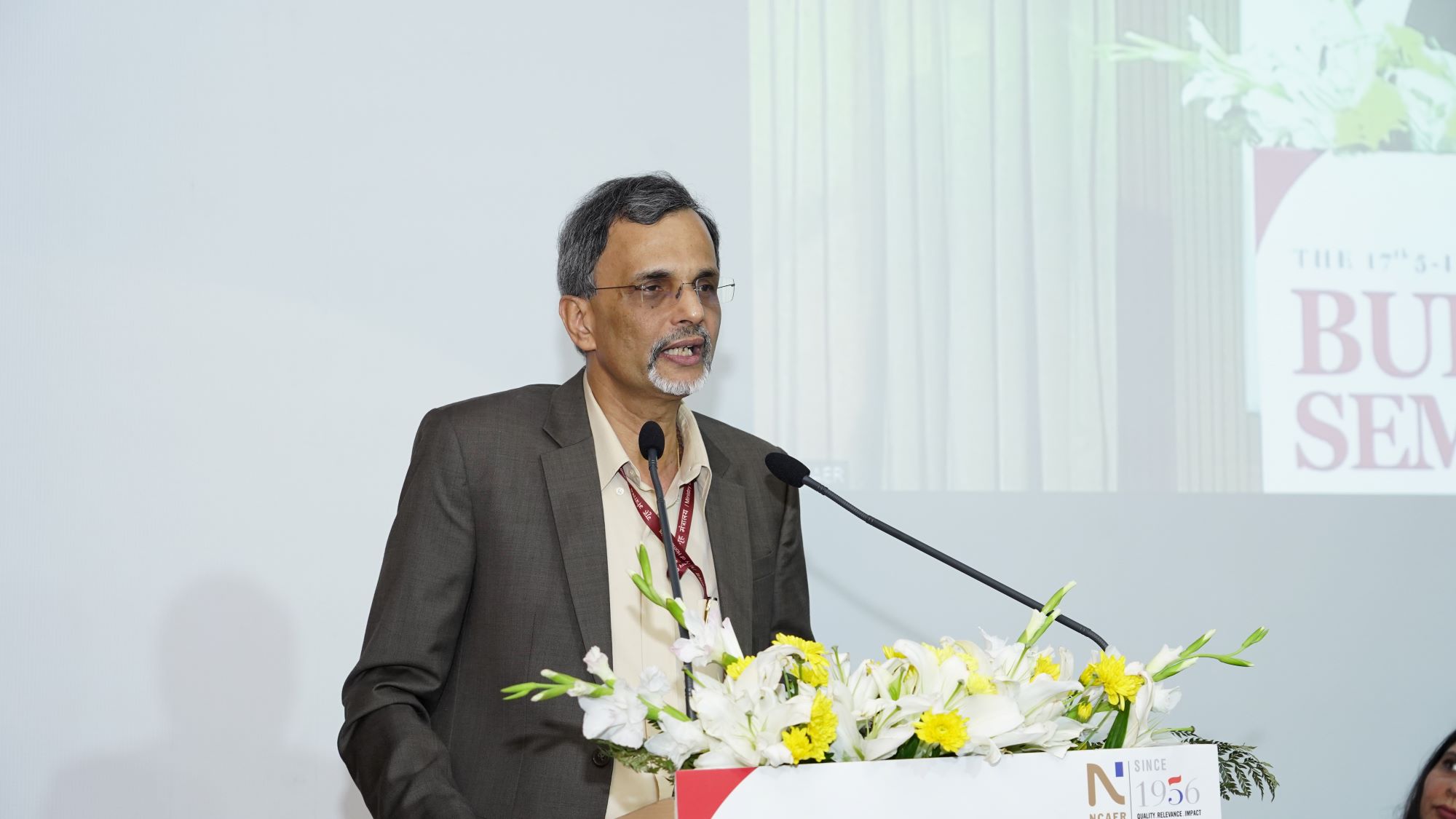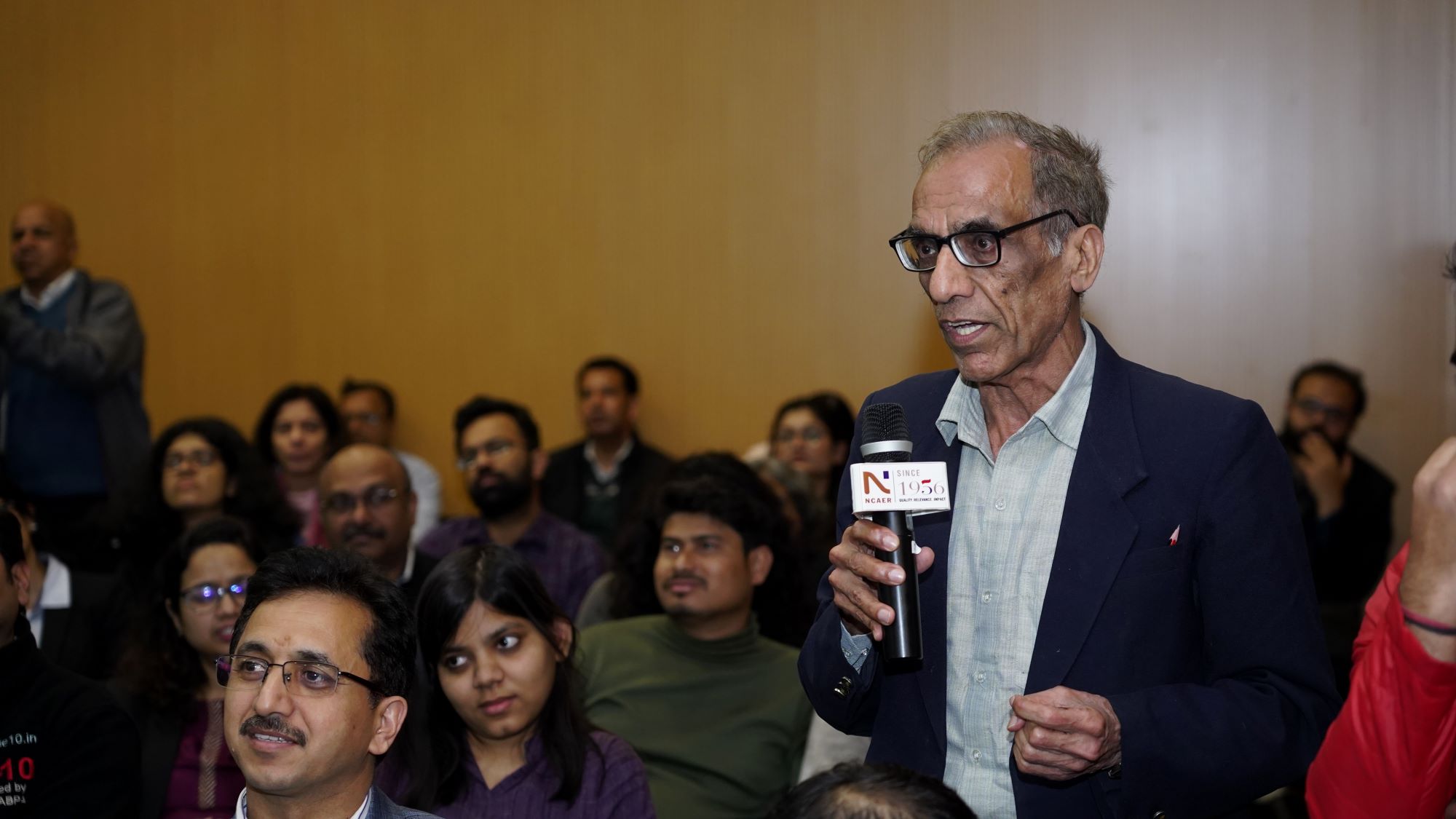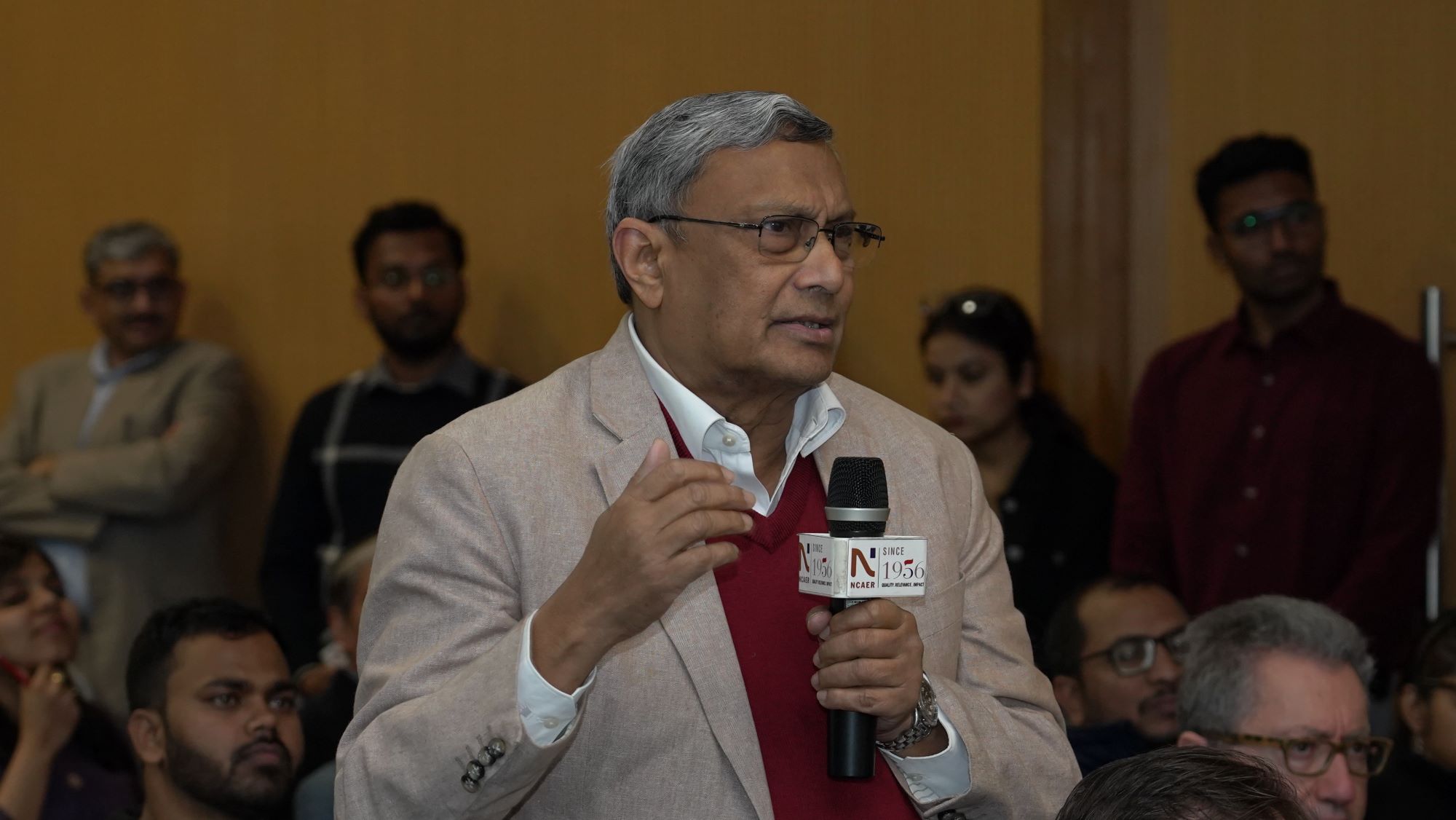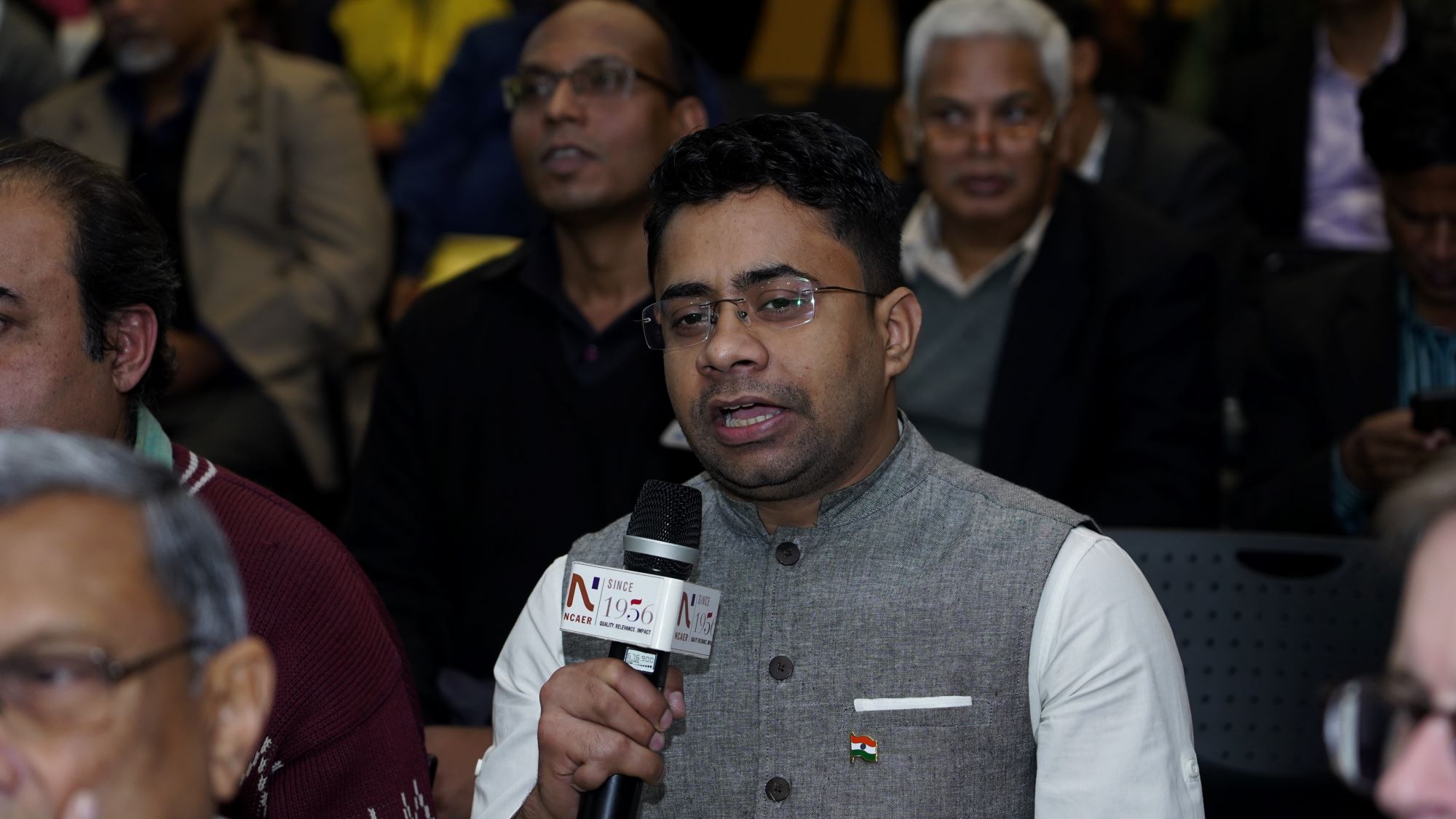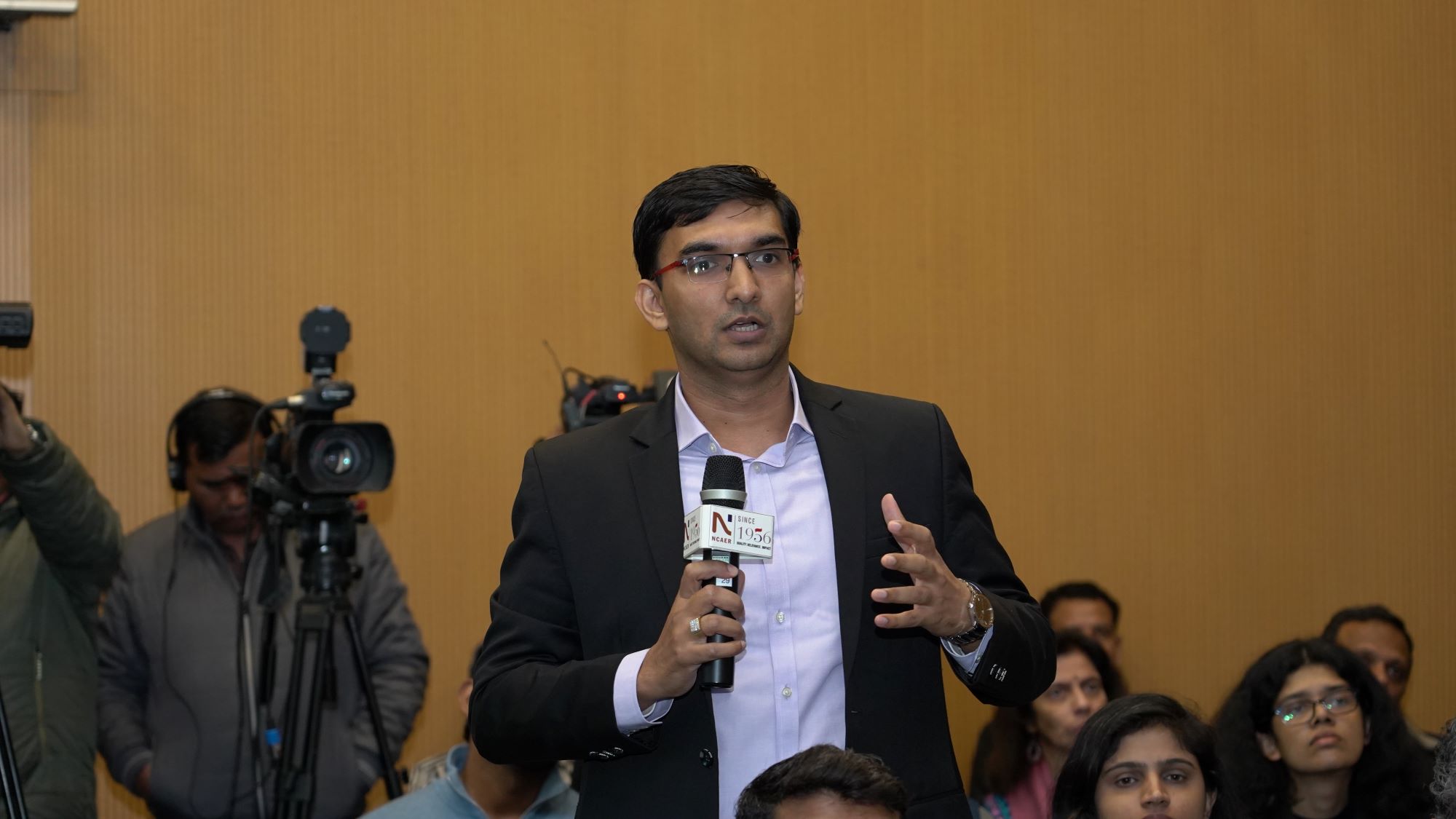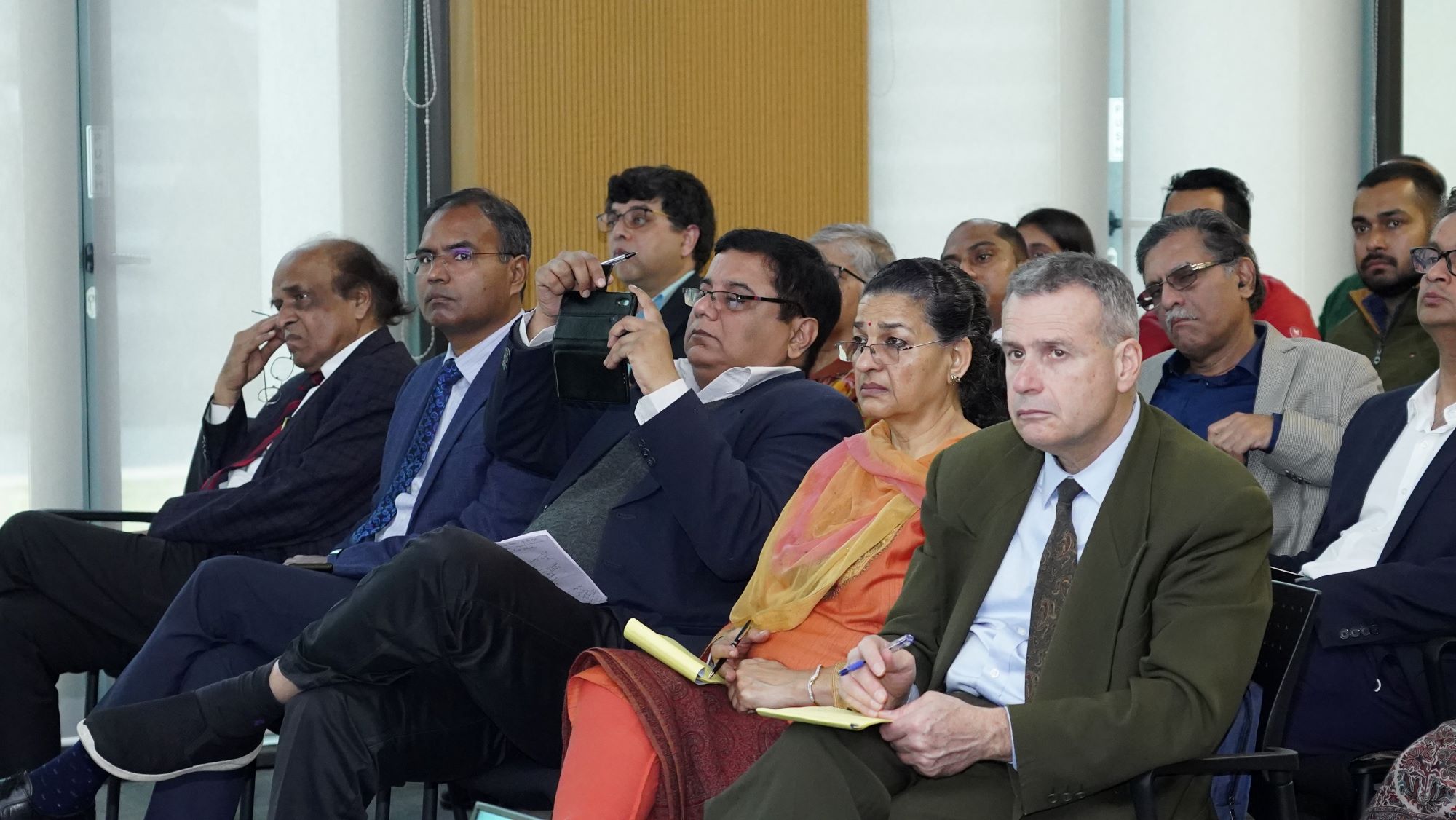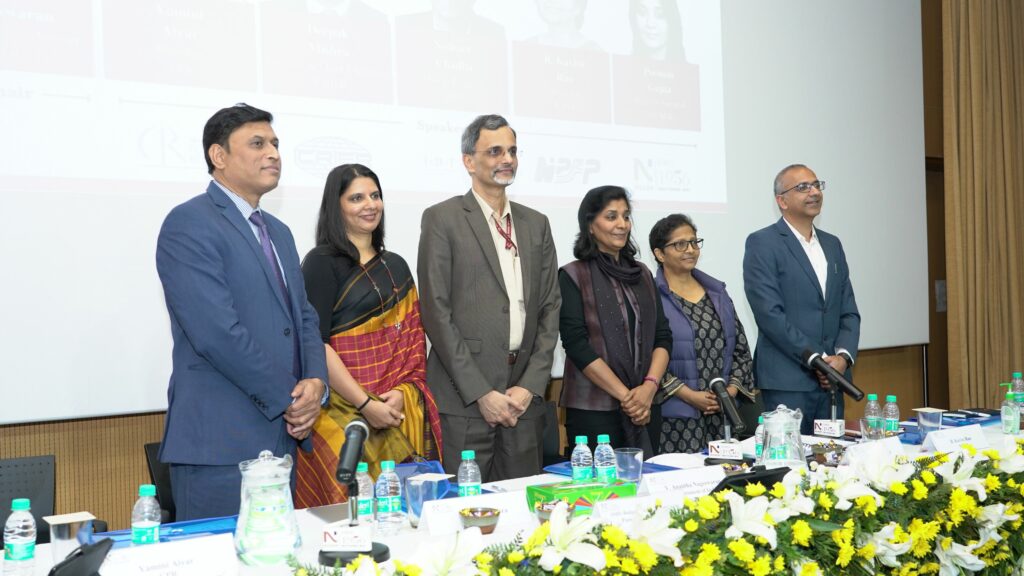
The National Council of Applied Economic Research (NCAER) hosted the 17th 5-Institute Budget Seminar on Monday, February 6, 2023.
As part of a tradition that has been continuing since 2007, the seminar brought together the heads of five Institutes, at the NCAER campus, that is, NCAER, the Centre for Policy Research (CPR), the Indian Council for Research on International Economic Relations (ICRIER), the India Development Foundation (IDF), and the National Institute of Public Finance and Policy (NIPFP), to discuss and present a reform and development perspective on the 2023-24 Union Budget. The speakers at this 17th edition of the Budget seminar included Poonam Gupta from NCAER, Deepak Mishra from ICRIER, Nishant Chadha from IDF, R. Kavita Rao from NIPFP, and Yamini Aiyar from CPR.
The discussion was chaired by V. Anantha Nageswaran, Chief Economic Adviser to the Government of India.
During her presentation, the Director General of NCAER, Poonam Gupta pointed out, “The 2023-24 Union Budget focused on domestic consumption as the main engine of growth, followed by public investment as the second, albeit smaller, growth engine. Significantly, it has not equally supported private investment or exports as accelerators of economic growth or generators of employment. But then, key policy announcements need not be confined to the annual budgetary exercise. Let’s hope that equally zealous announcements would follow through the year to support exports and private investments, both domestic and foreign direct investments. This would be crucial for ensuring that the Indian economy accelerates on all four engines, and not just on two.”
Flagging the issue of fiscal consolidation, R. Kavita Rao, Director, NIPFP, said, “Fiscal consolidation, as highlighted in the Budget, signifies an apt reflection of fiscal marksmanship.” She also said that the increase in capital expenditure announced in the Budget was a positive move but it remains to be seen if increase in capex really leads to an increase in employment, especially as most infrastructural development in recent years is being done through machines rather than human labour. She further opined, “Since the Government hopes to increase capex without increasing revenue expenditure, some re-allocation can be expected in capex. …There should also be room for freezing of revenue expenditure, if required.”
According to Deepak Mishra, Director and Chief Executive, ICRIER, “The 2023-24 Budget is likely to be best remembered for giving everyone something to feel good about, without resorting to reckless and populist policies. The Finance Minister did a great balancing act with respect to the development trinity: growth, distribution (inclusion), and stability. But the Budget did not announce any bold structural reform to tackle some of the binding constraints facing the economy, especially those that can help India to overcome its export stagnation.”
Focusing on the implications of Budget 2022-23 for the health and education sectors, and touching upon the themes of social security and jobs, Nishant Chadha, Fellow and Head, Projects, IDF, stated, “Productivity is multiplicative, and we need to create more productive jobs and to retain skilled people to build our economy. Overall, this Budget also makes it clear that education in the country needs a fix.”
Yamini Aiyar, President, CPR, highlighted the underlying political economy behind the Budget, reflected in limited State capacity for implementing the various schemes launched by the Government. She argued, “Since there is a limit to capital expenditure, we need better management, better incentivisation of the States, and a better federal structure to deal with the federal vacuum that inevitably arises when the Union Government prioritises schemes. She also suggested, “Since India’s fiscal structure is quite decentralised and de-concentrated, States often wait for implementation of Centrally-sponsored schemes before executing them at the State level. The ultimate trade-off is that we do not invest in human capital—an area that needs to be addressed urgently.”
Speaking on the occasion, the Chief Economic Adviser, Government of India, Dr V. Anantha Nageswaran noted, “The bulk of external market and other reforms have been undertaken in the last 20-30 years, and thereafter, we have been implementing incremental reforms, which is a focal point in the 2023-24 Budget.”
Dr Nageswaran also lauded the current Budget for “ensuring that the system has been cleaned up and the databases updated successfully, as a result of which no beneficiary will be left out. In fact, the allocations for various Centrally-sponsored projects may have gone down in the last few years but money going into the hands of the beneficiaries has doubled because the systems have been streamlined, leakages have been plugged, outputs are improving, and the process of identifying beneficiaries has been successfully and efficiently implemented.”
Dr Nageswaran also expressed his appreciation for the manner in which India had handled and implemented the vaccination programme post the outbreak of the COVID-19 pandemic. “Unlike many other countries, including the advanced economies, India implemented its vaccination programme with tremendous efficiency, successfully vaccinating over 1 billion people, and even managing to export vaccines to countries that could not access them otherwise.”
Finally, Dr Nageswaran touched upon the issue of the debt-to-GDP ratio, and averred that India was only one of three countries worldwide (Indonesia and Germany being the other two) where the debt-to-GDP ratio had been kept under check during the pandemic years, going up by only 3 per cent, from 81 per cent to 84 per cent—a significant achievement, not witnessed even in many advanced economies.


 Events
Events 